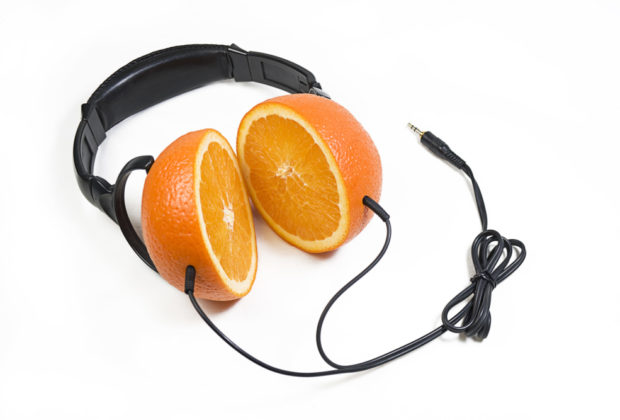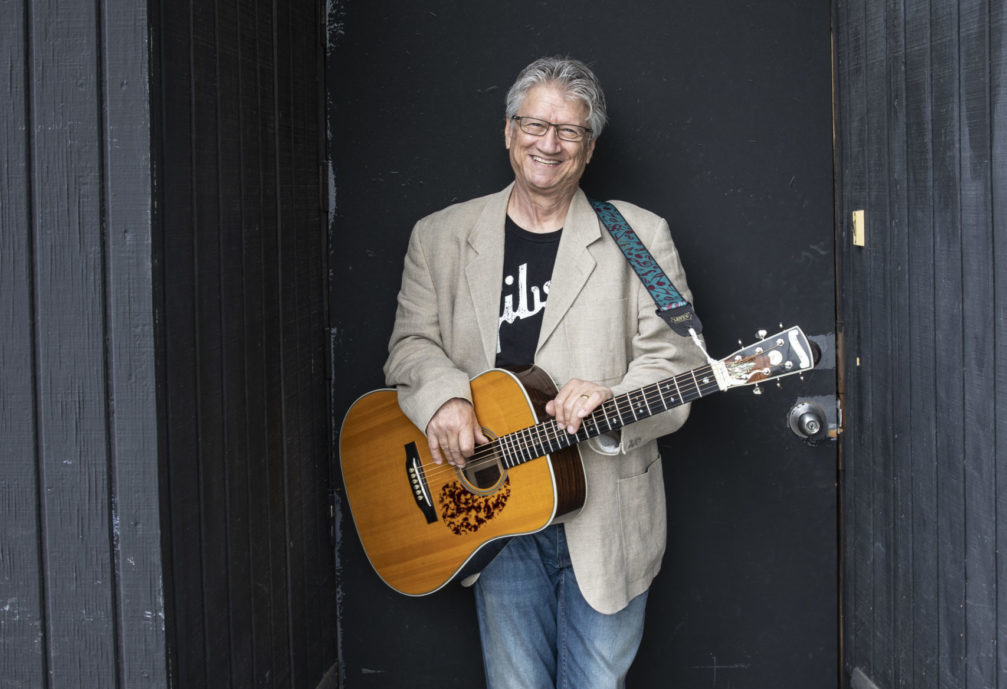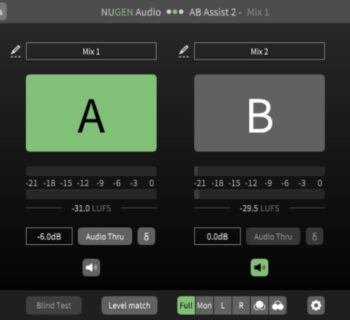Nutrition and hydration are paramount to staying well, energized, and maintaining mental health on tour. While touring is a great way to connect with fans, promote an album, and showcase your body of work, life on the road certainly has its challenges. Limited access to healthy food and irregular meal times are common pitfalls that can have a lasting impact on a person’s sleep, energy, mood, and performance. Musicians need high-efficiency nutrition, similar to athletes. Additionally, crew members complete grueling physical labor daily that also requires proper fueling to support energy levels and mood.
Touring artists and crew can improve their nutrition starting with load-in. Before reaching for coffee, aim for at least 16 fl. oz. of filtered water, ideally at room temperature. Dry tour bus or hotel room air can be dehydrating, as we lose moisture each time we exhale to humidify our breath. This compounds fluid losses a person may already experience after performing. If alcohol was consumed the night before or if re-hydration wasn’t a priority after the show, that will also contribute to morning dehydration, lack of energy, and grogginess.
After water, organic coffee or tea can be great ways to start the day, while it’s generally best to refrain from energy drinks and soda, the acidity of which can irritate the throat, and are often laden with sugar, and artificial flavors, colors, and additives. If coffee is harsh on your throat (which is particularly important to be aware of for singers), opt for a latte, a cold brew, or a dark roast coffee (which is less acidic), all of which may be easier on the stomach and vocal cords. Organic high quality matcha tea or yerba mate are also energizing alternatives to coffee that provide a boost without jitters.
Food options in the morning and throughout the day will invariably depend on whether tour catering is available, restaurant food or local catering is brought in, or per diems are offered for band and crew to purchase their own food. A Mediterranean Diet is a healthy choice for most people, is nutritionally complete, and helps sustain energy levels and boost mood and cognition.
The hallmark of a well-executed Mediterranean Diet is produce. Fresh fruits and vegetables contain vitamins, minerals, and antioxidants that support energy, mood, and digestion, as well as protect against oxidative stressors of tour including indoor and outdoor pollution, alcohol, processed foods, and refined inflammatory fats and sugars. While fresh produce can be tough to come by, access has gotten better over the years. If catering or a reasonable restaurant option is available, aim to start the day with produce by having eggs with vegetables and avocado or a vegan tofu or bean and veggie scramble with olives or avocado on the side.
Greens, in particular, assist our body with properly utilizing the protein and nutrients in our food. A green smoothie is an easy on-the-go option, or even mushroom and kale egg bites alongside a piece of fruit from Starbucks if in a pinch and needing to fuel roadside. If budgets are tight, get the most nutritional bang for your buck with a packet or two of steel-cut instant oats (just add hot water from the venue, or even from a rest stop or convenience store along the road) with a handful of nuts and dried fruit mixed in. If available, fresh fruit, flaxseeds, and cinnamon are great add-ins as well (these can be included on the rider or stocked on the bus or van).
Lunch and dinner follow a similar pattern, with produce being the cornerstone, alongside high- quality protein, complex carbohydrates (think whole grains and sweet potatoes), and healthy fats like extra virgin olive oil. While salads and bowls (using brown rice or quinoa as a base) are available at many chain restaurants, the dressings they come with are often processed and inflammatory. Forgoing these in favor of high-quality extra virgin olive oil (I keep a bottle on the bus) and vinegar or fresh-squeezed lemon will make for a healthier option.
If a full meal makes you feel heavy or slows you down before performing, try something light such as broth-based soup with whole grain crackers, an apple (it has soluble fiber which is great for those who suffer from acid reflux) with raw almond butter, or a veggie and quinoa salad with avocado. While triggers and sensitivities are different for everyone, it’s wise to avoid any foods that typically cause digestive problems such as onions or garlic, cruciferous vegetables (e.g. cauliflower, brussels sprouts), beans, and dairy.
Protein and carbohydrates post-show will help muscles recover, maintain stable mood levels, and prepare the body for sleep. Instead of fried chicken, consider a grilled chicken sandwich on whole grain bread with mustard and veggies. Instead of stuffed-crust pepperoni pizza, choose thin crust pizza that’s light on cheese and heavy on vegetables, forgoing the processed and cured meats. Pair a salad with the post-show meal to assist digestion. Replenish fluids and energy by re-fueling immediately after getting off stage and aiming for at least two hours between the last meal and bedtime, or more if acid reflux is a concern. Having adequate time to digest before bed allows for proper breakdown and absorption of nutrients, minimizes gastrointestinal issues, and supports restorative sleep.
While it’s tempting to reach for alcohol after a performance, whether to celebrate a great show, or in an attempt to dampen the emotions or adrenaline rush following a live performance, alcohol both dehydrates as well as interferes with sleep duration and quality. Coconut water or filtered water are great options to replenish fluids after performing (consider adding a packet of electrolytes to water, such as Nuun, Liquid IV, Drip Drop, or similar). Cold-pressed juice, herbal tea, and alcohol-free spirits are also great beverages to have around when water isn’t an enticing post-show option.
Musicians—who are already at an increased risk of mental health struggles in comparison with the general population—report even greater incidence of depression, anxiety, and panic attacks on the road. Investing in healthy food, and a dietitian to source that food and curate a tour bus and green room atmosphere of wellness, can enhance performance, reduce burnout and support mental health. This allows musicians to enjoy performing more shows over a longer career.
EMMALINE RASMUSSEN, MS, RD, E-RYT, is a Registered Dietitian specializing in neurology and integrative medicine. A well-connected music enthusiast, she wholeheartedly believes musicians are performers who should be on high performance diets, much like athletes. Without placing as much importance on their health as athletes do, these artists’ careers will be stunted. Her organization, Sound Nutrition, was thoughtfully developed with the input of musicians and music industry professionals at every step of the process to create comprehensive services that promote optimal nutrition and wellness throughout an artist’s career. For further information, see soundnutrition.co














